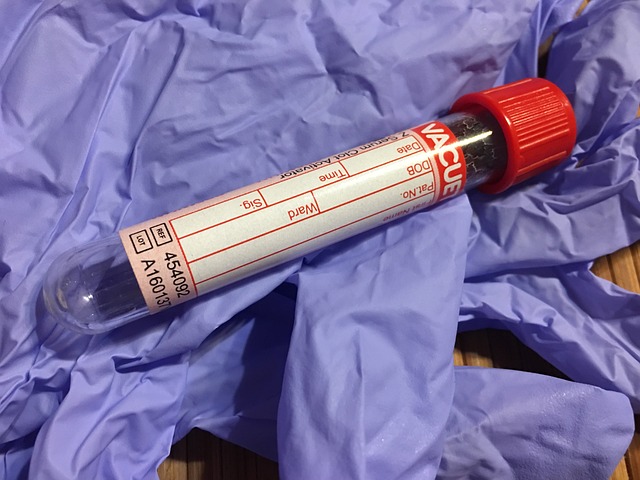The world of health is vast. Entire libraries are filled with books focusing on tiny aspects of how the body w orks and what happens when it fails to work properly. The amount of information is truly overwhelming, and it keeps getting added to every day. If you want to get a glimpse into what I mean, go to MedicalXpress.com. There they report on dozens of new scientific papers being published each day. But this is a drop in the bucket of the over one million papers published each year in the biomedical field. It would be a full-time job just to simply read the titles of all the papers 8 hours a day, five days a week. So my job is to communicate some of this vastness into understandable sound bites that you, my patients, can use to support your health.
orks and what happens when it fails to work properly. The amount of information is truly overwhelming, and it keeps getting added to every day. If you want to get a glimpse into what I mean, go to MedicalXpress.com. There they report on dozens of new scientific papers being published each day. But this is a drop in the bucket of the over one million papers published each year in the biomedical field. It would be a full-time job just to simply read the titles of all the papers 8 hours a day, five days a week. So my job is to communicate some of this vastness into understandable sound bites that you, my patients, can use to support your health.
When it comes to health, probably the most critical system for immediate health is the ability of your bloodstream to carry oxygen to your cells so that you can generate energy for everything to run on. Almost any problem you have in the body could be caused by p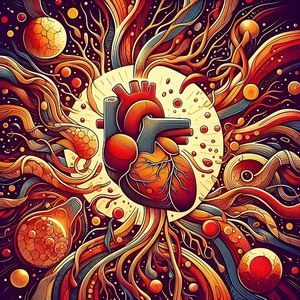 oor blood supply. This is pretty obvious when you have a wound gushing blood. Blood loss creates a type of anemia that will threaten every cell in your body. No blood means no oxygen, which means you die. Why? Because oxygen is needed for the energy factories in each cell to make ATP; the gasoline your cells run on. But more than that, after that energy is used, the waste products are CO2 and water. Your bloodstream has to carry away both of these. The water the rest of your body can usually use, but the CO2 is poisonous and must be carried by the blood cells to the lungs to release it into your exhaled breaths.
oor blood supply. This is pretty obvious when you have a wound gushing blood. Blood loss creates a type of anemia that will threaten every cell in your body. No blood means no oxygen, which means you die. Why? Because oxygen is needed for the energy factories in each cell to make ATP; the gasoline your cells run on. But more than that, after that energy is used, the waste products are CO2 and water. Your bloodstream has to carry away both of these. The water the rest of your body can usually use, but the CO2 is poisonous and must be carried by the blood cells to the lungs to release it into your exhaled breaths.
Since the function of blood is so immediately vital to your health, we like to look at your blood for our first inquiries about your health. Do you have enough blood cells?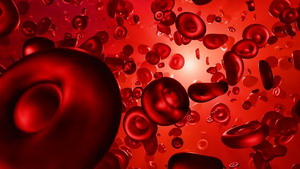 Are they the right size and shape? Do they have enough iron and hemoglobin in them to do the job? Are the cells sticky or free-flowing? What about white blood cells? These kinds of questions are easy to assess when looking at your blood sample under a microscope. But what kinds of symptoms make us want to look at a blood sample?
Are they the right size and shape? Do they have enough iron and hemoglobin in them to do the job? Are the cells sticky or free-flowing? What about white blood cells? These kinds of questions are easy to assess when looking at your blood sample under a microscope. But what kinds of symptoms make us want to look at a blood sample?
Here are my basic questions. 0 means the least/or never increasing up to 3 means most/or always.
Do you fatigue easily – loss of energy 0 1 2 3
Do you have an unusually rapid heartbeat, especially with exercise 0 1 2 3
Do you have difficulty concentrating? 0 1 2 3
Do you have dizziness? 0 1 2 3
Do you have pale skin/ gums/ nail beds? 0 1 2 3
Do you get leg cramps? 0 1 2 3
Do you have insomnia? 0 1 2 3
Next some questions about chronic blood loss:
Do you have jaundice (yellow skin or whites of eyes)? 0 1 2 3
Is your urine brown or red? 0 1 2 3
Do you have leg ulcers? 0 1 2 3
Do you have heavy menstrual periods? 0 1 2 3
Do you have hemorrhoids, bloody, or tarry stools? 0 1 2 3
Then we inquire about your iron levels:
Do you hunger for strange things like paper, dirt, or ice? 0 1 2 3
Do your nails have an upward spoon-like curvature? 0 1 2 3
Is your mouth sore w/ cracks at the corners? 0 1 2 3
And we look at your vitamin B12 levels:
Do you have tingling pins and needles in your hands or feet? 0 1 2 3
Is your gait wobbly or do you have difficulty walking? 0 1 2 3
Do you have hallucinations, paranoia, or schizophrenia? 0 1 2 3
Do you have dementia? 0 1 2 3
 that we have hit a jackpot that needs further investigation. Before we check any other system in your body, we make sure all the systems have a good blood supply. Without blood, they can’t work properly
that we have hit a jackpot that needs further investigation. Before we check any other system in your body, we make sure all the systems have a good blood supply. Without blood, they can’t work properly
What causes anemia? The most obvious is blood loss. The most common type of blood loss is one that usually has no clear symptoms – micro bleeding in the stomach an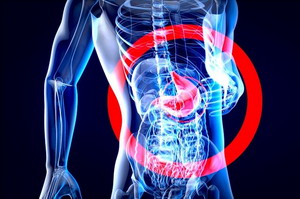 d upper intestine from things like aspirin use. But once the amounts of blood become larger, we tend to notice. For example, blood in the stool, heavy periods, bleeding skin ulcers, and blood in the urine could all be the cause of anemia. Watch for these things. The most common symptom of anemia is fatigue. When your oxygen goes down, your energy goes down. With that, things like dizziness, shortness of breath, difficulty concentrating, and muscle cramps become common.
d upper intestine from things like aspirin use. But once the amounts of blood become larger, we tend to notice. For example, blood in the stool, heavy periods, bleeding skin ulcers, and blood in the urine could all be the cause of anemia. Watch for these things. The most common symptom of anemia is fatigue. When your oxygen goes down, your energy goes down. With that, things like dizziness, shortness of breath, difficulty concentrating, and muscle cramps become common.
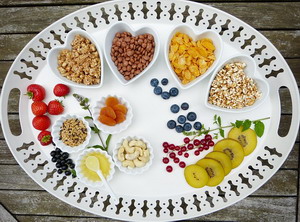 will die on only a plant-derived food diet. Iron is another major deficiency. Other than the heme (blood) form of iron, plant and mineral sources of iron are very hard to digest. Anything that lowers digestive function like low stomach acid will interfere with iron absorption. This is becoming a common problem due to all the people on acid-blocking drugs. Folic acid is another required vitamin for red blood cell formation. Not getting enough protein is also a regular cause of anemia, particularly in old folks. Nutritional toxicities like lead exposure, drug exposure, chemotherapy, radiation, pesticides, and so on can all cause anemia.
will die on only a plant-derived food diet. Iron is another major deficiency. Other than the heme (blood) form of iron, plant and mineral sources of iron are very hard to digest. Anything that lowers digestive function like low stomach acid will interfere with iron absorption. This is becoming a common problem due to all the people on acid-blocking drugs. Folic acid is another required vitamin for red blood cell formation. Not getting enough protein is also a regular cause of anemia, particularly in old folks. Nutritional toxicities like lead exposure, drug exposure, chemotherapy, radiation, pesticides, and so on can all cause anemia.
 diseases will frequently cause anemia. Crohn’s disease and colitis cause blood loss and thus anemia. And of course, cancer is famous for creating anemia. A medical doctor will check for anemia primarily to help them find these more serious diseases, but in my world, any anemia is significant due to its theft of vital energy for staying healthy. If you checked your scoring on the previous questions and find that you have several most/always answers then we can run a simple blood test at a lab to check you out.
diseases will frequently cause anemia. Crohn’s disease and colitis cause blood loss and thus anemia. And of course, cancer is famous for creating anemia. A medical doctor will check for anemia primarily to help them find these more serious diseases, but in my world, any anemia is significant due to its theft of vital energy for staying healthy. If you checked your scoring on the previous questions and find that you have several most/always answers then we can run a simple blood test at a lab to check you out.
Take care,
Ellen
Ellen has been feeling more stable from the work she has been doing with her trainer Luca. This made her bold enough to try to get into the car all on her own. While t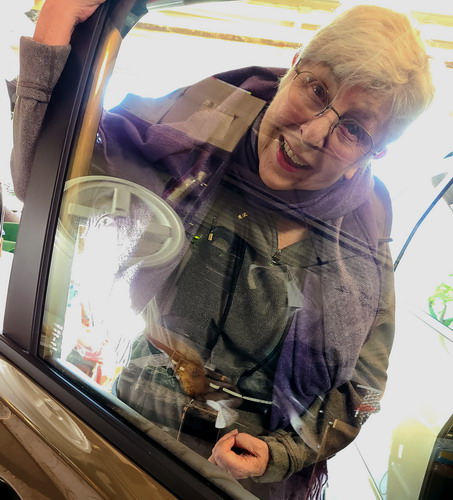 his seems like such a little thing, for her it is a big deal. She was able to roll her wheelchair up to the car door, pull herself up, and twist to sit down in the car all on her own.
his seems like such a little thing, for her it is a big deal. She was able to roll her wheelchair up to the car door, pull herself up, and twist to sit down in the car all on her own.
Cheese please!
A recent study if 2.3 million older adults that independent of socioeconomic factors, the happier they were the bett er their health was and the longer they lived. One of the standout factors the researchers found was that these healthy happy older people ate more cheese than those that did not fare as well. This is not proof that cheese makes you live longer, but the finding is intriguing.
er their health was and the longer they lived. One of the standout factors the researchers found was that these healthy happy older people ate more cheese than those that did not fare as well. This is not proof that cheese makes you live longer, but the finding is intriguing.
___________________________
“If you want to be loved, be lovable. “
~Ovid
_____________________________________
Exercise: time of day matters
Studies testing the effects of vigorous exercise at different times of the day show very different outcomes both for the 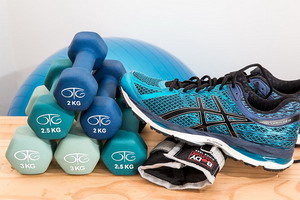 time and males versus females. Exercising a couple hours before bed lowers blood sugar and keeps it down all night. Conversely for women morning exercise does a better job of promoting belly fat loss and lowering blood pressure. Men on the other hand lost more fat exercising at night and also lowered blood pressure. Time of day matters.
time and males versus females. Exercising a couple hours before bed lowers blood sugar and keeps it down all night. Conversely for women morning exercise does a better job of promoting belly fat loss and lowering blood pressure. Men on the other hand lost more fat exercising at night and also lowered blood pressure. Time of day matters.
____________________________
“Happy is the man who has broken the chains which hurt the mind, and has given up worrying once and for all.”
~Ovid
________________________________________
Fasting helps immune system fight cancer better
One part of the immune system that is supposed to fight cancer are the NK cells – natural killer cells. Cancer depletes the sugar these cells need to function around the cancer. Fasting trains these NK cells to function by burning fats instead of sugar. This allows them to fight cancer much better.
the sugar these cells need to function around the cancer. Fasting trains these NK cells to function by burning fats instead of sugar. This allows them to fight cancer much better.
________________________
“Everything comes gradually and at its appointed hour.”
~Ovid
